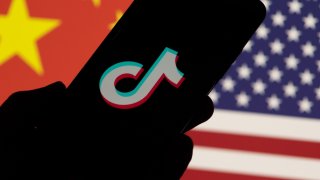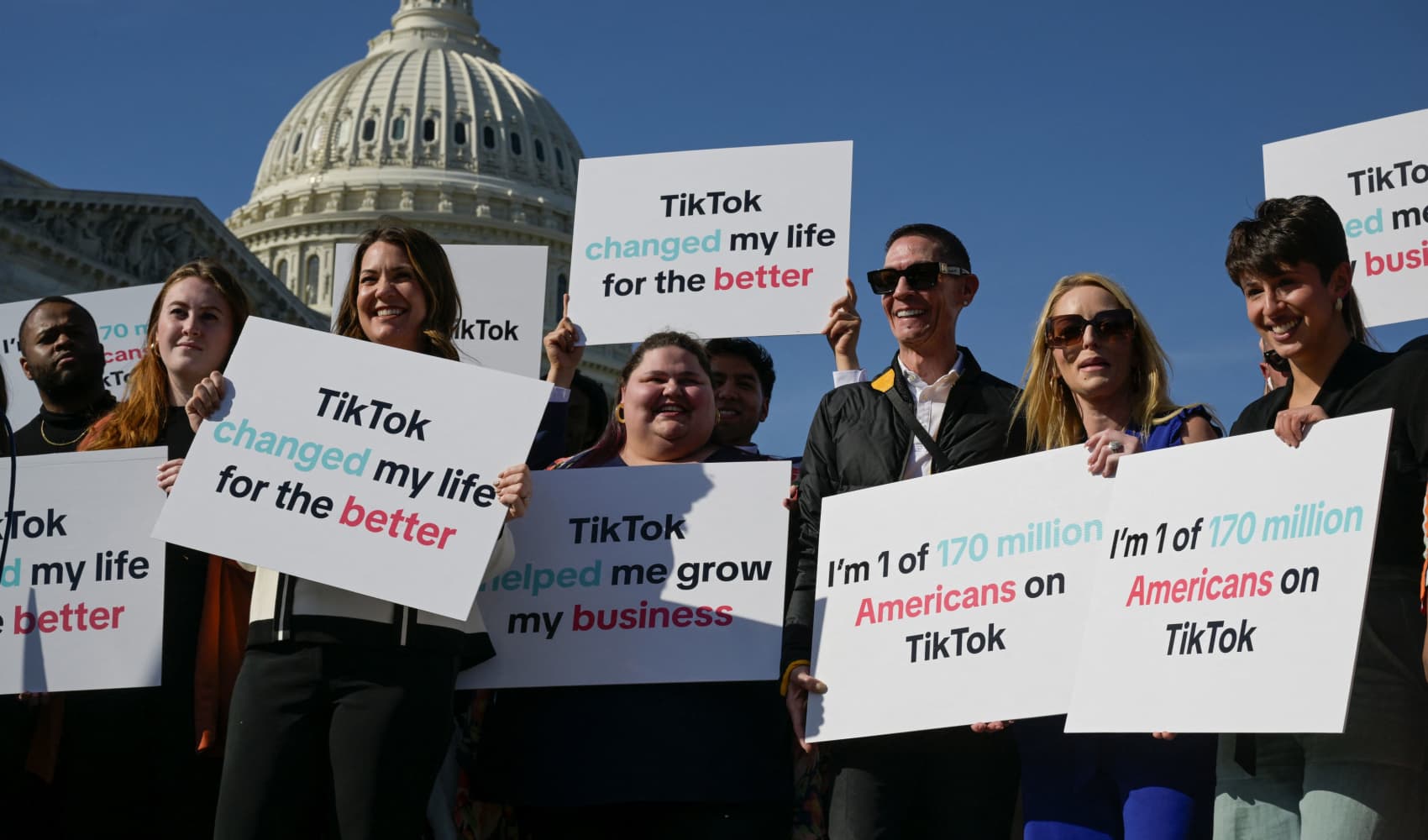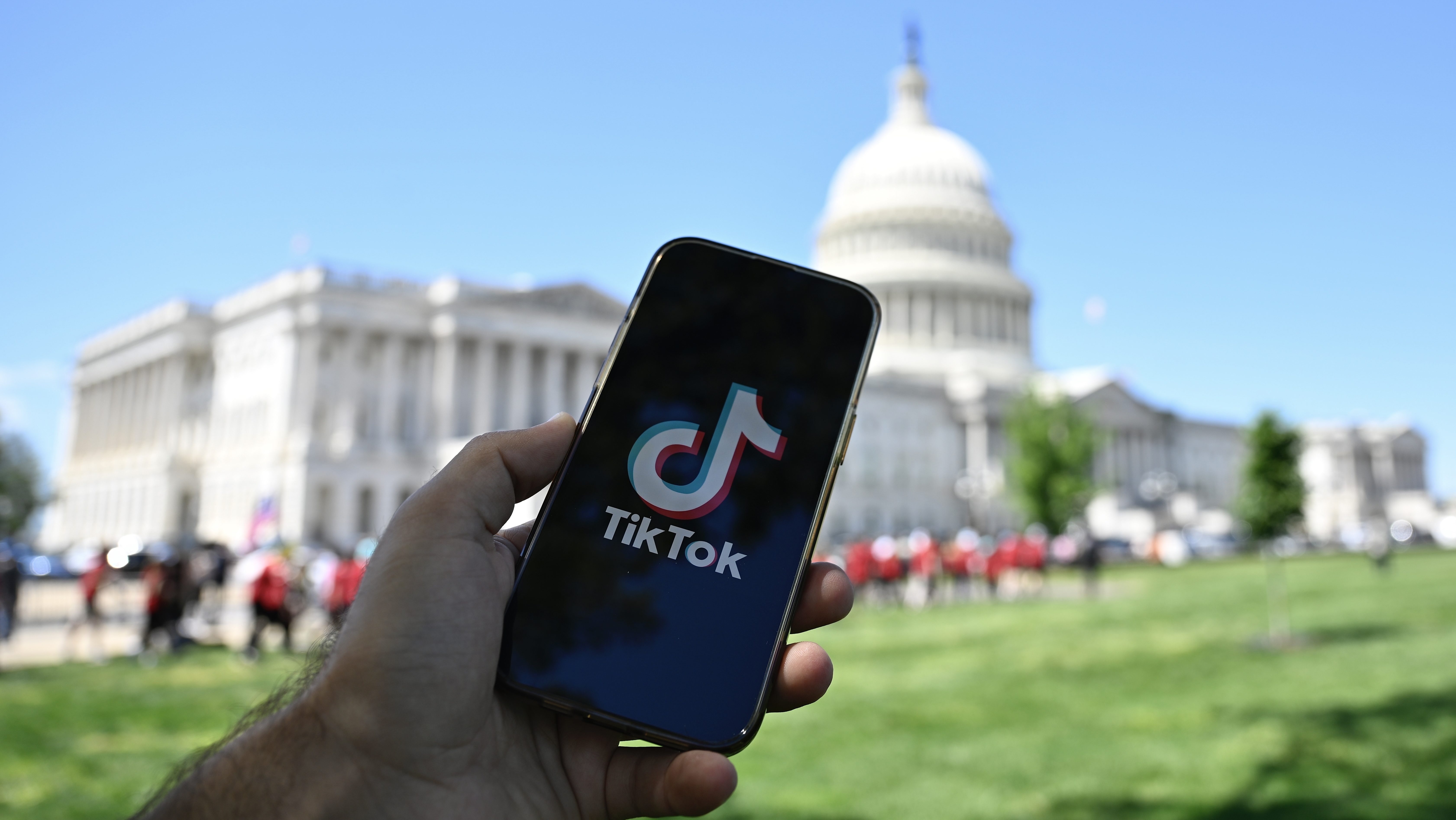
TikTok is gearing up for a legal fight against a U.S. law that would force the social media platform to break ties with its China-based parent company, a move almost certainly backed by Chinese authorities as the bitter U.S.-China rivalry threatens the future of a wildly popular way for young people in America to connect online.
Beijing has signaled TikTok should fight what it has called a “robbers” act by U.S. lawmakers “to snatch from others all the good things that they have.” Should a legal challenge fail, observers say Chinese authorities are unlikely to allow a sale, a move that could be seen as surrendering to Washington.
Beijing may not want the U.S. action against the popular short-form video platform to set a “bad precedent,” said Alex Capri, senior lecturer at the National University of Singapore and research fellow at Hinrich Foundation. “If Beijing capitulates to the U.S., where does it end?”
In its first official response to the new law, parent company ByteDance delivered a statement Thursday on Toutiao — a Chinese news app it owns — stating it "doesn’t have any plan to sell TikTok.” The Beijing-based firm was responding to media reports that said it was exploring scenarios for selling TikTok’s U.S. business.
Get Tri-state area news delivered to your inbox. Sign up for NBC New York's News Headlines newsletter.
The legislation that U.S. President Joe Biden signed this week could allow Washington to widen its scope to target other China-related apps, such as the popular e-commerce platform Temu, and embolden U.S. allies to follow suit, said Hu Xijin, a former editor-in-chief for the party-run newspaper Global Times.
With 170 million American users, TikTok should “have more guts to fight to the very end and refuse to surrender,” Hu, now a political commentator, said Wednesday on Chinese social media.
TikTok vowed to challenge the new U.S. law, which requires ByteDance to divest its stakes within a year to avoid a ban. The company has characterized the law as an infringement on the free speech rights of its users, most of whom use the app for entertainment.
“We believe the facts and the law are clearly on our side, and we will ultimately prevail,” the company wrote on the social platform X.
The fight over TikTok has increased tensions between the U.S. and China, with both vowing to protect their economic and national security interests. U.S. lawmakers are concerned the Chinese ownership of the app could allow Beijing to exert unwanted influence in the U.S., especially on young minds. The law has followed a string of successes by Washington in curbing the influence of Chinese companies through bans, export controls and forced divestitures, drawing protests from Beijing that the U.S. is bent on suppressing China’s rise through economic coercion.
The U.S. has forced other Chinese companies to divest before, including in 2020, when Beijing Kunlun, a Chinese mobile video game company, agreed to sell the gay dating app Grindr after receiving a federal order. But TikTok, created by a Chinese company only for the overseas market and evidence of the nation's tech powers on the global stage, is a high-profile case that Beijing does not want to lose.
National dignity is at stake and could “take precedence over the financial interests of ByteDance investors,” including global investors who own 60% of the company, said Gabriel Wildau, managing director of the New York-headquartered consulting and advisory firm Teneo.
A legal challenge from the company is expected to lean on First Amendment concerns and could drag on for years. Beijing is betting on a legal win, analysts say.
What to do if TikTok doesn't prevail is likely still being debated with the Chinese leadership, said Dominic Chiu, an analyst with Eurasia Group. President Xi Jinping, who will have to sign off on whether to permit or prohibit the sale, probably has not made the final decision, Chiu said.
Luckily for Xi, there is no urgency for Beijing to decide, said Sun Yun, director of the China program at the Washington-based Stimson Center. “A lot of things could change," she said.
If lawmakers get their wish and a sale does occur, it’s likely to be a challenging and messy process for TikTok, which would have to disentangle its U.S. operations from everything else.
For one, the price tag for TikTok’s U.S. business — which is unknown — is expected to be high enough to severely limit the pool of investors and companies who’d be able to afford it. Some investors — including former Treasury Secretary Steve Mnuchin — have already positioned themselves as potential buyers of a U.S. version of TikTok. ByteDance, which is privately held, is valued at $220 billion, according to market tracker Pitchbook.
And there’s uncertainty about what would happen with the TikTok algorithm, the secret sauce that feeds users short videos based on their interests and has contributed to the platform’s status as a cultural juggernaut.
ByteDance would be barred from controlling the algorithm of a U.S. spinoff of TikTok. Many experts believe Chinese authorities would block any sale of the technology that populates people's TikTok feeds under export regulations revised in 2020, when then-President Donald Trump unsuccessfully tried to ban TikTok through an executive order that was blocked in federal courts.
Some, including Mnuchin, have said TikTok would need to be rebuilt in the U.S. using new technology. But it's unclear what that might look like, or how well it can reproduce the type of video recommendations users have grown accustomed to seeing.
Robin Burke, a professor of information science at the University of Colorado Boulder, says some aspects of the algorithm might be replicated by industry insiders. But he also noted there are areas where TikTok appears ahead of its competitors and duplication might prove challenging.
“TikTok has all the experience, they have all the data,” Burke said. “I think it’s unlikely that a U.S. business — if they don’t inherit the technology from the parent company — would be able to build something equivalent. Certainly not right away.”



